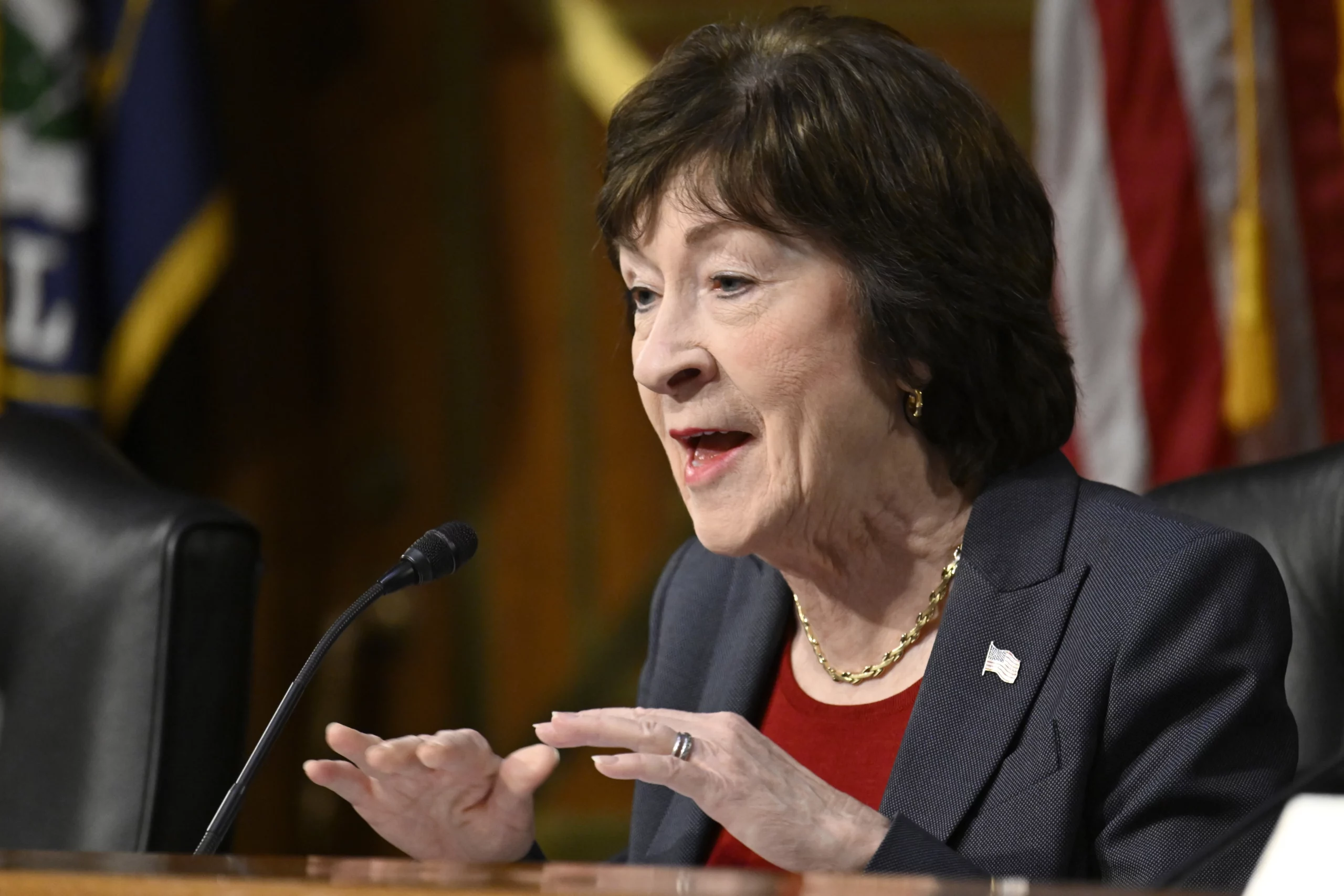

Sen. Susan Collins (R-ME) announced she will vote to confirm President Donald Trump’s pick to lead the U.S. intelligence community, Tulsi Gabbard, raising the prospects that the former Democratic congresswoman will be able to advance out of the critical Senate intelligence panel.
Gabbard’s nomination will be considered voted on behind closed doors on Tuesday by the Senate Intelligence panel, where her nomination could come down to one vote. The committee is split 9-8 in favor of Republicans, meaning if all panel Democrats oppose Gabbard, as is expected, a single GOP flip could prevent her nomination from reaching the floor.
Collins, who has emerged as a critical swing vote for Trump’s nominees, was one of the primary sponsors of legislation to overhaul the U.S. intelligence community to create the position in 2004.
In a statement announcing her support, Collins said that Gabbard shares her vision of “returning the agency to its intended size.”
“As one of the principal authors of the Intelligence Reform and Terrorism Prevention Act of 2004 that established this coordinating position, I understand the critical role the DNI plays in the Intelligence Community,” Collins wrote in a statement on Monday. “The Office of the Director of National Intelligence, however, has become far larger than it was designed to be, and Ms. Gabbard shares my vision of returning the agency to its intended size.”
.@SenatorCollins is a YES on Tulsi Gabbard’s nomination, a good sign for her being able to be reported out of Intelligence Committee tomorrow: pic.twitter.com/tFeXxneFQJ
— Samantha-Jo Roth (@SamanthaJoRoth) February 3, 2025
The Maine senator who had previously indicated she had concerns for Gabbard’s past support for NSA leaker, Edward Snowden, now said her concerns have been addressed.
“In response to my questions during our discussion in my office and at the open hearing, as well as through her explanation at the closed hearing before the Senate Intelligence Committee, Ms. Gabbard addressed my concerns regarding her views on Edward Snowden. I look forward to working with Ms. Gabbard to strengthen our national security,” Collins said.
Gabbard’s responses to questions about Snowden ultimately became the hearing’s biggest flashpoint. She repeatedly refused to call Snowden a traitor during her confirmation hearing on Thursday, even as lawmakers on both sides of the aisle gave the former Democratic congresswoman more than a half-dozen chances to withdraw her past support of Snowden.
Sen. James Lankford (R-OK), who had also previously announced his support for Gabbard, said on Monday that he intends to support her nomination after speaking with her over the weekend. Last week, following Gabbard’s confirmation hearing, Lankford said her response to the Snowden questions were a “surprise.”
With the support of Lankford and Collins, however, the committee vote is expected to come down to Sen. Todd Young (R-IN). Throughout the hearing, Young appeared to be dissatisfied with Gabbard’s answers on Snowden during his questioning in the committee hearing.
“I think it would befit you and be helpful to the way you were perceived by members of the intelligence community, if you would at least acknowledge… that he harmed national security by breaking the law,” he said to her during the hearing.
On Thursday, the Indiana senator told reporters he has “all the info” he needs to make a decision. Over the weekend, Vice President JD Vance attempted to sway Young on Gabbard’s nomination, according to sources familiar.
CLICK HERE TO READ MORE FROM THE WASHINGTON EXAMINER
The Republican Party has a 53-47 majority in the upper chamber, which means any of Trump’s Cabinet nominees can only afford to lose three Republicans’ support and still get confirmed.







